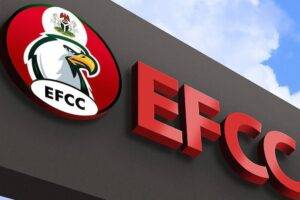The Federal Government and Dangote Petroleum Refinery are set to reconvene discussions on the naira-for-crude policy, according to high-level government sources. The first phase of the six-month agreement, which ended on March 31, 2025, was not immediately renewed, prompting Dangote Refinery to halt sales of refined petroleum products in naira.
A senior official familiar with the ongoing deliberations stated that the government has not abandoned the policy. “The initiative is going to continue because it has had a significant impact not just on fuel prices but also on other economic indicators, including the exchange rate,” the source explained. The official added that the Nigeria Upstream Petroleum Regulatory Commission (NUPRC) is finalizing its recommendations on the policy before a new agreement is considered.
Since its inception on October 1, 2024, the policy aimed to stabilize fuel supply, reduce Nigeria’s dependence on costly petroleum imports, and ease pump price fluctuations. Despite these objectives, its non-renewal has raised concerns over potential economic repercussions.
Dangote Refinery’s Import Strategy Amid Uncertainty
As discussions on the naira-for-crude deal remain unresolved, Dangote Refinery has turned to global crude markets to sustain operations. A report by S&P Global revealed that the refinery processed approximately 400,000 barrels per day (bpd) of crude oil in 2025 so far, with about 35% of its supply sourced from international imports. This translates to an estimated 140,000 bpd being imported, totaling 12.6 million barrels over three months.
The Dangote refinery has already secured its first crude oil shipments from Brazil and Equatorial Guinea. According to S&P Global Commodities data, Brazil’s Petrobras delivered the first cargo of Tupi crude on March 26, amounting to one million barrels. While Equatorial Guinea’s supplies are yet to arrive, industry insiders confirm that new international suppliers are being added to diversify feedstock sources.
The Dangote refinery’s pivot to global crude procurement signals a strategic shift, as the Nigerian National Petroleum Company Limited (NNPC) has struggled to meet its supply obligations. Despite an initial commitment to provide 385,000 bpd under the naira-for-crude deal, NNPC reportedly delivered around 280,000 bpd by March 10, 2025.
NNPC’s Role and Supply Challenges
NNPC, as a major supplier and stakeholder in the Dangote Refinery, has faced supply shortfalls and financial constraints affecting its ability to meet crude commitments. The national oil company, which previously held a 20% stake in the refinery, reduced its share to 7.2% in July 2024.
NNPC officials confirmed that a total of 84 million barrels of crude had been supplied to the Dangote Refinery since it commenced operations in 2023. However, only 48 million barrels were supplied under the naira-for-crude agreement. Despite challenges, NNPC has allocated seven crude oil cargoes to deliver approximately 245,000 bpd to the refinery in April, though payment terms remain under negotiation.
A Dangote executive expressed doubts over the future of the agreement, stating, “We are not certain if it will be renewed or if it will proceed at all.” The executive highlighted concerns over currency risks, noting that pegging crude purchases and refined product sales in naira exposed the refinery to foreign exchange fluctuations, making the deal commercially unviable.
Economic Implications and Stakeholders’ Reactions
The potential discontinuation of the naira-for-crude policy has sparked reactions from economic analysts and industry stakeholders. Experts warn that failure to renew the agreement could lead to increased fuel prices and heightened inflation, exacerbating economic hardships for Nigerians.
Under the deal, the government aimed to curb foreign exchange pressures by reducing dollar demand for crude purchases. Analysts argue that suspending the policy could lead to higher fuel import costs and a further depreciation of the naira. Moreover, private businesses reliant on affordable fuel may face operational constraints, impacting job security and economic growth.
Meanwhile, trade sources confirm that negotiations for a new supply framework are ongoing, with discussions focusing on balancing domestic crude supply with international procurement strategies. Government officials remain optimistic that a mutually beneficial arrangement will be reached in the coming weeks.
HURIWA Calls for Policy Continuation
The Human Rights Writers Association of Nigeria (HURIWA) has urged President Bola Tinubu to ensure the continuation of the naira-for-crude deal, warning of severe economic consequences if the policy is discontinued. In a statement signed by its National Coordinator, Emmanuel Onwubiko, HURIWA emphasized that terminating the deal could lead to skyrocketing fuel prices and worsen living conditions for millions of Nigerians.
“In the spirit of the Sallah celebrations, we urge President Tinubu to direct his economic team to reach an agreement with local refineries, including Dangote Refinery, to sustain the naira-for-crude policy,” Onwubiko stated.
He further warned that failure to do so could force small and medium enterprises to shut down due to rising fuel costs. The World Bank has already reported an increase in the number of Nigerians living in poverty due to inflationary pressures. HURIWA stressed that another round of fuel price hikes would deepen economic distress and increase the burden on low-income households.
The group called on the government to act swiftly, stating that any delay in renewing the agreement could have lasting economic repercussions. “The expanding frontiers of mass poverty should not be ignored. Any policy shift that leads to higher fuel costs will only push millions into further hardship,” the statement concluded.
As stakeholders prepare to resume negotiations, the future of the naira-for-crude policy remains uncertain. The outcome of these discussions will be pivotal in shaping Nigeria’s energy sector and economic trajectory in the months ahead.
Table of Contents
Discover more from OGM News NG
Subscribe to get the latest posts sent to your email.














